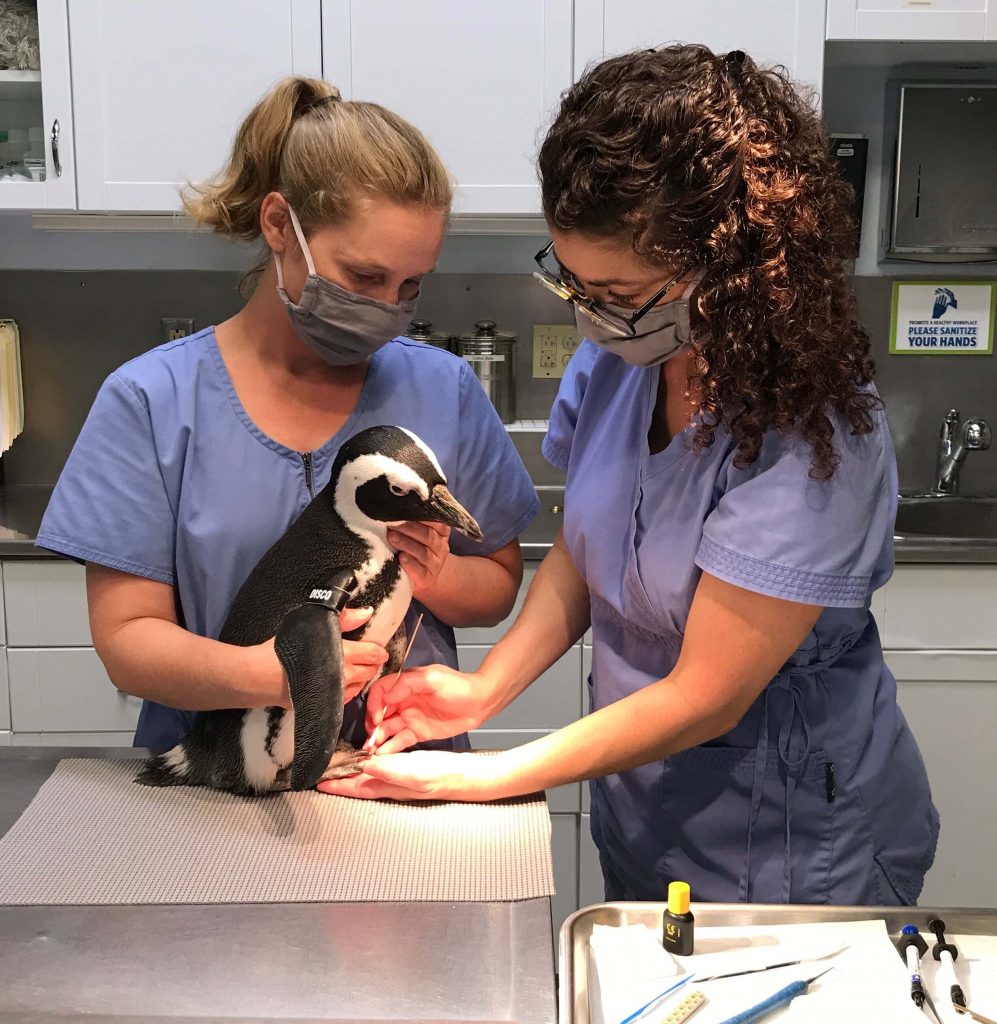
One of the National Aviary’s longest-standing members of its flock has passed away at the age of 22. Known as Stanley, he was named after the Stanley Cup of the National Hockey League. He arrived at the Aviary in Pittsburgh’s North Side in 2001, just at the age of 2 months.
Stanley gained national recognition for his close bond with his mate, Dottie, according to the Aviary’s website. He played a crucial role in her recovery from a chest mass in 2020. Visitors often observed them basking together on a shared rock inside Penguin Point, the area where the penguins reside.

The Aviary announced Stanley’s passing through social media on Thursday, expressing deep sadness. Their post read, “We are incredibly saddened to say farewell to Stanley, the very first African Penguin to reside at the National Aviary, named in honor of the Stanley Cup.”
We are incredibly saddened to share that we have said goodbye to Stanley (named for the Stanley Cup), the very first African Penguin to call the National Aviary home. pic.twitter.com/N917ZRVecL
— National Aviary (@National_Aviary) May 2, 2024
According to information from the Aviary’s website, African Penguins hail from the southwestern coast of Africa, belonging to a group of 18 penguin species found in the southern hemisphere. These penguins are among the smallest, standing at about 18 inches tall and weighing between 6 to 10 pounds.
Dr. Pilar Fish, a veterinarian and senior director of Zoological Advancement & Avian Medicine at the Aviary, explained that in the wild, African Penguins typically live between 8 to 12 years, while under human care, they can live up to 25 years. Known affectionately as “Stan” among staff, Stanley was described as “an incredible penguin with a grand personality.”

Stanley, beloved by everyone, had a confirmed back and spinal condition, as revealed by a CT scan.
Despite being flightless, African Penguins are remarkably agile swimmers, using their wings like paddles and their webbed feet like flippers to reach speeds of up to 15 miles per hour in water.
African Penguins are part of an Association of Zoos and Aquariums species survival plan, aimed at rescuing critically endangered species and restoring their populations. Stanley’s great-grandparents were brought from South Africa in the 1960s to help establish this program.
Stanley was considered geriatric for African Penguins.
About 18 months ago, Stanley began experiencing difficulty standing or walking, as noted on the Aviary’s website.
He was transferred to a customized habitat within the Aviary’s veterinary hospital, where he underwent physical therapy, including swimming in a pool with a life vest, range of motion exercises, assisted walking, and acupuncture.
Despite being out of the public eye, Stanley received regular visits from staff members who had cared for him for over two decades, according to Fish.
The Aviary developed a tailored plan that included swimming with the aid of a life vest to help him paddle and stimulate his legs, along with stretching and walking exercises.
“Just like with people, spinal conditions take time to heal,” Fish commented. “We were hopeful. He made some progress but wasn’t able to make a full recovery. He was a special penguin and surrounded by people who loved him. It was so great to be able to care for him. Losing him is a tough part of life but we are celebrating the memories we have of him and that is important to acknowledge.”
Leave a Reply